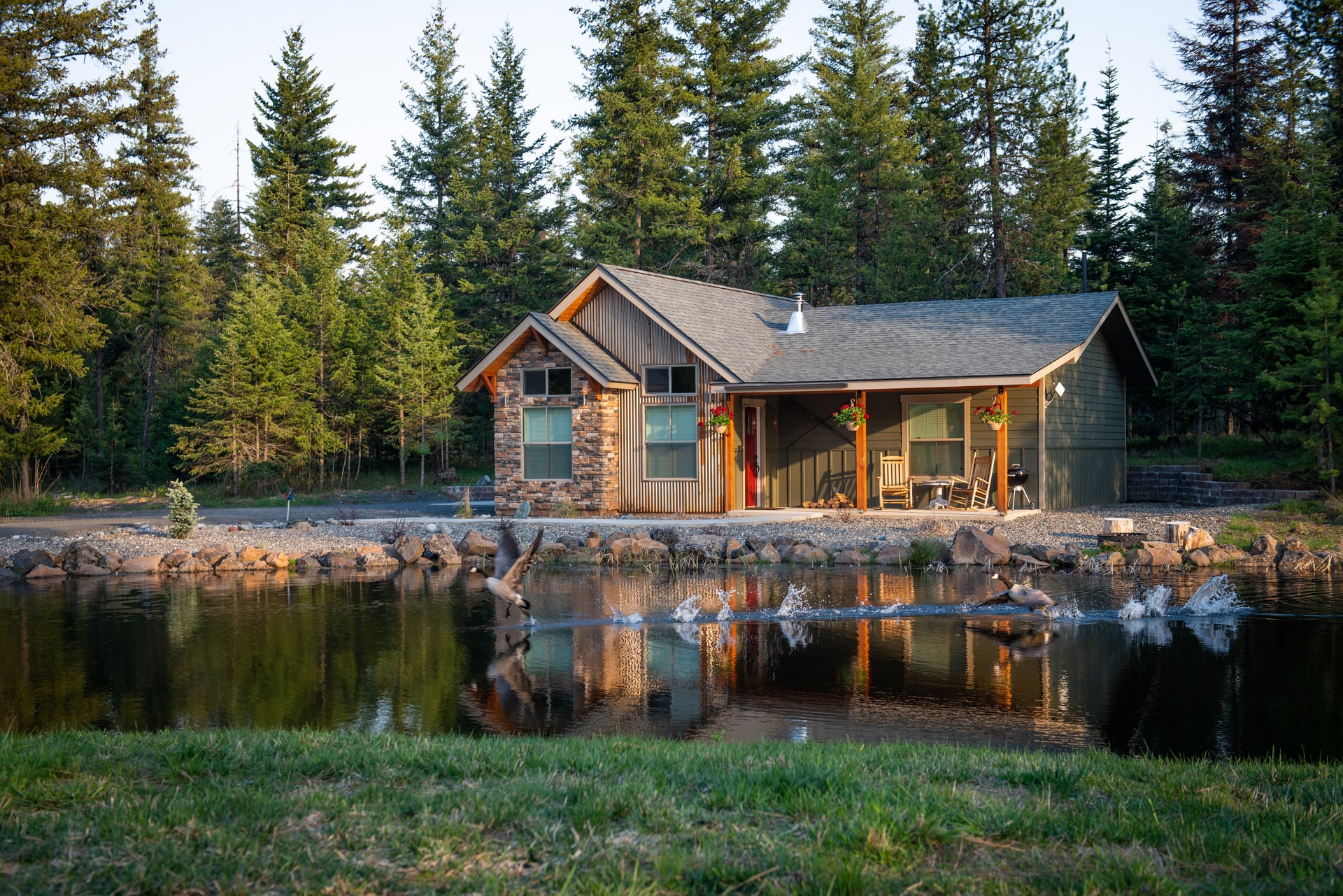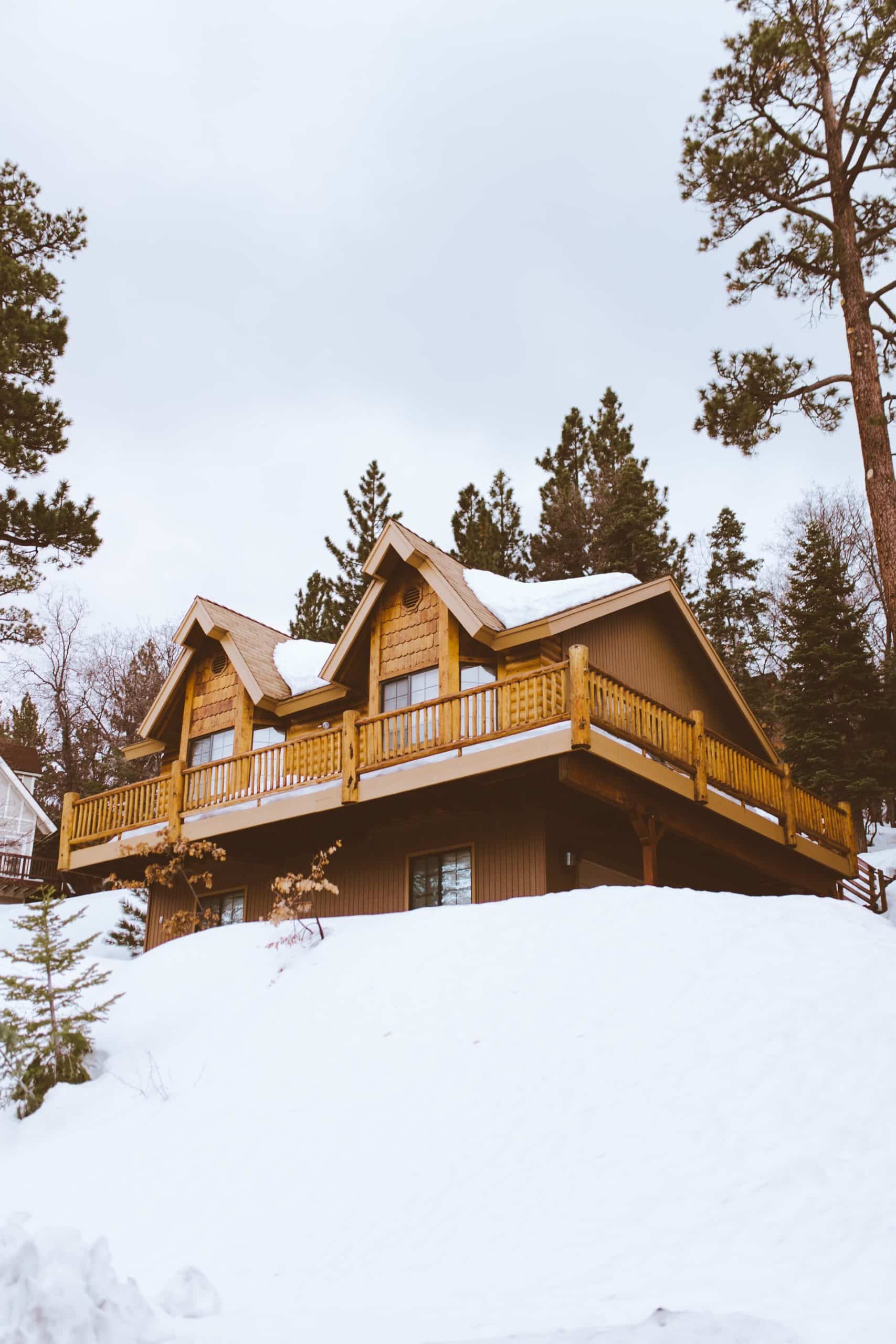Whether your primary home is paid off and you have extra income, or you’re in a good position to take out a new mortgage with favorable rates, buying a vacation move could be the right move for you. Learn more about the pros and cons of buying a vacation home and familiarize yourself with the processes and responsibilities so that you can get the most out of your investment.
IMAGE: UNSPLASH
Some Benefits Of Owning A Vacation Home
Whether you plan to use it as a second residence for yourself or rent it out for some or all of the year, you’ll find a host of potential benefits to owning a vacation home, as long as the finances make sense. Long term rental may be part of your plan or the short-term rental market via services such as Airbnb or VRBO that will keep your property free when you want. Setting aside the financial benefits, buying a vacation home connects you to a new community, and it gives you a place to unwind and recharge if you plan to use it for yourself.
Your second home could even be your first. Some urban professionals, and especially younger people who are still building their careers, are now choosing to buy their second home first. The logic is compelling. Many people whose jobs keep them in high-cost areas such as New York City and Silicon Valley find it impossible to think of buying as home there, but want to get started building equity anyway. Paying the rent with big-city income and buying a weekend or vacation retreat on a mortgage makes sense. And there’s the option to rent out the property.
Learn About The Real Estate Market
Interest in owning a second home skyrocketed in 2020, and no matter where you are thinking about buying you are likely to go into a seller’s market with tight inventory and high competition. At the same time mortgage rates are near all-time lows, so in many ways there’s never been a better time for this kind of investment. Take the time to delve into your desired market by browsing listings, reading statistics concerning rental properties, checking local codes and regulations on rentals, and speaking to local real estate professionals.
Surprisingly, the majority of vacation property owners didn’t know where they wanted to buy when they set out. So unless you have a favorite place in mind, this will become a significant search for you. Right now, vacation cabins in the Smoky Mountains could be a good investment, the unique rental cottages of Seaside, Florida could be great (if you could find one), and the Finger Lakes region of New York has fairly low pricing compared with fairly steady rental income.
There are plenty of hot (and cold) spots across the country, so spend time on this research unless you already have your spot. To fully prepare yourself, book a short-term rental stay in the area so that you can get to know it more fully as an owner, and experience the neighborhood as a tenant or homeowner.
Research The Financial Implications
Depending how you intend to use the property, finances are the most important aspect of the commitment you are going to make, and it’s crucial that you understand their impact on your own fiscal situation before finalizing any decisions.
There will be tax implications of course, and the specifics of those depend on where your primary residence is and where the new property will be as well. Discuss your plans with your accountant to get a solid picture of how this investment will affect your tax liability now and for the future.
The legal implications are important also, in terms of your estate planning. You may want to talk to your planner or attorney about land trust ownership or creating a legal entity such as a corporation or LLC to hold the property. It’s simple enough nowadays to form an LLC in California, say, or any other state through a few keystrokes, but you’ll want to understand the requirements before you take this step.
Managing The Vacation Property
Owning a home that you plan to rent out is about much more than paying a mortgage; you need to consider factors such as management, maintenance, administrative costs and more, because landlording can seem like a full-time occupation sometimes.
If you plan to rent the home out through the use of a short-term service, be sure to account for the fees charged for every booking that is made. Since these services do the work of finding rental tenants for a property, they do offer owners some protections in situations such as accidents, damages, vandalism, and more, but these protections are not all-encompassing. It’s important to thoroughly check your own homeowner’s insurance policy as well to know what you will and won’t be covered for as a property owner.
For cases of long-term rentals, you may want to investigate the costs of paying typically around ten percent of the rent to use a property management service. Property management companies can take care of a variety of tasks such as the all-important tenant screening (which can make or break your rental estimates), maintenance requests and scheduling, marketing, accounting, and much more. As always, you’ll have to run the numbers for your specific situation to see what makes the most sense.
Secure The Help Of Local Experts
In order to manage your property effectively you’ll need the help of people who are familiar with the local area and have experience in dealing with rental housing there. Go local for property management, real estate agents, and maintenance contractors. Choose a local financial institution to be your lender if possible, unless you have good reasons for going with someone else. If you are an absentee owner, these local experts will be your eyes and ears on the ground to help ensure your tenants have everything they need and increase the success of your investment.
If you are interested in even more lifestyle-related articles and information from us here at Bit Rebels, then we have a lot to choose from.


COMMENTS